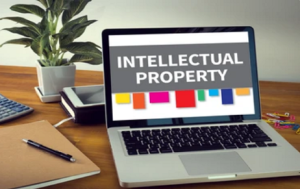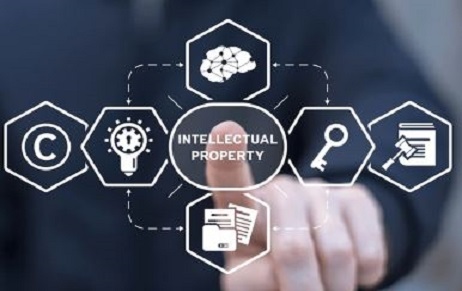Introduction The gaming industry has experienced exceptional growth in recent years, embracing as a crucial…
IP rights for social media Influencers and content creators
Introduction
What separates long-established print and electronic media from social media is that it comes along with a bunch of techniques for its usage. Out of the various components of social media, there are which are very different from rest, which are: Tools for distribution and wide circulation of subject matter throughout the globe; and tools for transmitting and swapping details. These are tools that shaped social media to be more significant than the long-established medias.
People like Media influencers or content producers, are widely known, powerful, and relevant and are able to impact those in their social networking sphere. They by using social sites such as Instagram, Facebook, YouTube, Twitter, Snapchat, and many other,create ad revenue, brand endorsement prospects, as well as other income sources.
Influencing others via social media is one of the most influential and efficient method of marketing and they get good pay out from it. Although, with media platforms gaining popularity and accessibility with every passing days,content makers are getting vulnerable to violation involving Intellectual Property Rights (IPRs).
[Image Sources: Shutterstock]
 Why is IP Important for Influencers?
Why is IP Important for Influencers?
If a person is a influencer and content creator, then their content on a daily basis gets your content gets engage don various channels. There is a need to understand that the content published is available to anyone and everyone with internet and can be copied and used. As a result, it is crucial to learn how to safeguard IP.
While producing content, it is also critical to recognise that media influencers check that they obtain proper licence prior to utilizing the contents of other individuals in clips, images, or the content of online posts.
Ensuring Compliances of IP laws
- Trademarks and logos:
On media platforms, names and emblems are commonly used to advertise companies and services, both visually and orally.
Trademarks are a type of intellectual property that is utilized to recognize, separate, and designate the source of a seller’s products and offerings from those of another. Content creators should first procure explicit authorization from any company whose brand name, emblem, or merchandise appear in a post, webpage or clip.
- Copyrighted content:
Copyright is a sort of intellectual property that preserves the author’s creative piece, such as images, videos, written material, art, etc and other creative inventions. It grants the original work’s creator the power to distribute, make copies of, exhibit, or perform it.
- Domain Names:
Domain names are simple addresses that visitors use to find any webpage on the Internet. Domain names are frequently acquired as trademarks. Every webpage has a domain name that serves as an address and is used to visit the website. Domain names are often business names that are followed by.com,.org,.gov, .net,.in, and so forth.
- Designs:
Many companies now sell via media platforms, for many it is their only means of marketing. In promoting their innovation, they are thereby disclosing patentable ideas and intellectual property, and they may be able to restrict others from selling items based on those models through media platforms or other means.
However, there are several reasons to register your intellectual property, including:
- To prove title of intellectual property rights, it aids in the enforcement of rights in the event of a disagreement.
- Registered IP becomes more liable and legit: When your material is registered, customers feel it more credible and are more likely to return to your website/platforms.
- It is simpler to get copied content removed if your IP is registered: If you discover someone abusing or reproducing your work, it is easier to get it removed if your IP is registered, as opposed to unregistered IP, which requires solid proof in favour.
- Avoiding reproductions entirely: If your work is registered, individuals will be less likely to repeat it in the first place because registration discourages copying.
Applications of Intellectual Property and Social sharing
From static comment sections to interactive messaging services like Facebook and Twitter, social media has played a major role in this significant shift in how the world expresses itself. You can identify elements of your intellectual property that may need immediate relief by conducting an in-depth review, such as:
• Registered or licenced Innovations
• Trade manuals and business guides are essential to the business;
• High-performance trademarks and sub-brands.
How can Influencers protect their IP?
Additionally, social media influencers, creators, and YouTubers need to prevent their original content since it is readily available to thousands of individuals online. Influencers are capable of executing their IP in addition to registering. Online nicknames, icons, taglines, names of series, and even hashtags might be able to be registered as trademarks. Original audio-visual works, written text, visual art, audio recordings, motion pictures, and other creative content may be protected by copyrights. In addition, a right of publicity can be established to prevent unauthorised use of an influencer’s name, image, or likeness. The distinction between ownership of original material, duplication, and distribution has become hazier as content availability in the digital world has expanded, especially on social media platforms. Contrary to common belief, one cannot simply copy material or pictures from a social media page and claim them as their own; doing so constitutes copyright abuse.
Conclusion:
Since social media has given us all the ability to share information and post our own works, the laws governing intellectual property cases have changed significantly. Although the problem of intellectual property on social media is complicated, it can be successfully handled by taking the proper precautions for compliance and security. Additionally, the defendant’s unauthorised use of the plaintiff’s registered trademarks in a way that endangers their unique feature or reputation is incompatible with ethical business or industrial practises.
Author: Kaustubh Kumar, in case of any queries please contact/write back to us via email to [email protected] or at IIPRD.
References
- https://www.iiprd.com
- https://www.legalwiz.in
- https://www.udemy.com

 Why is IP Important for Influencers?
Why is IP Important for Influencers?

